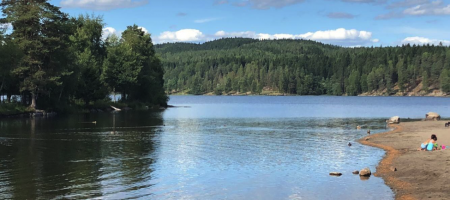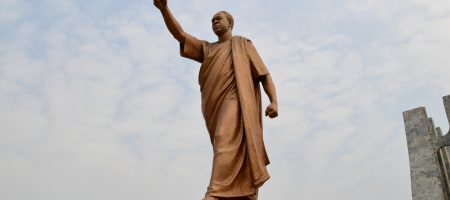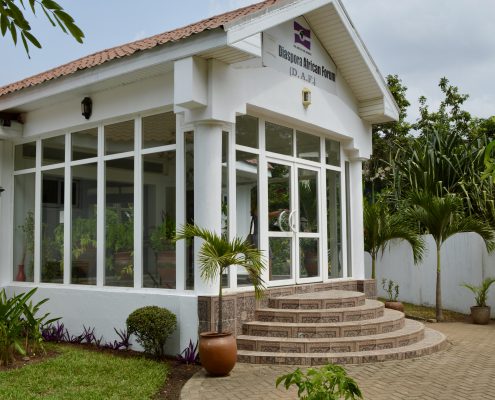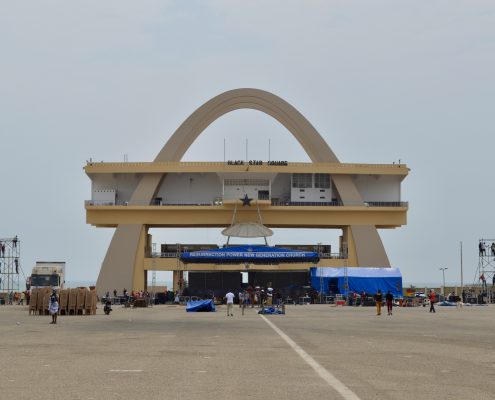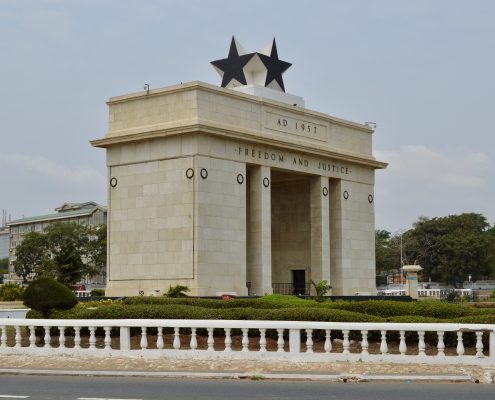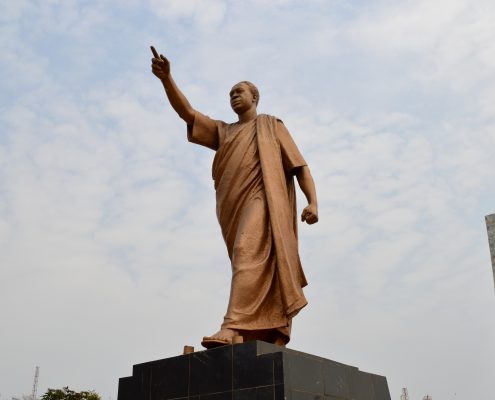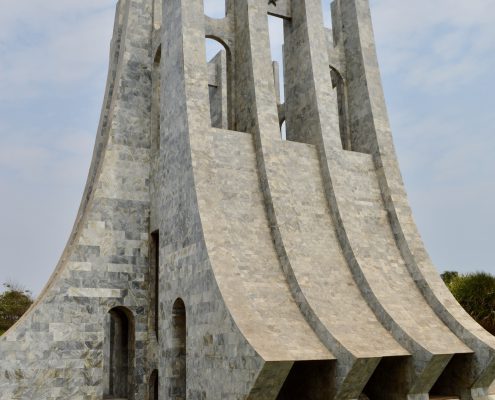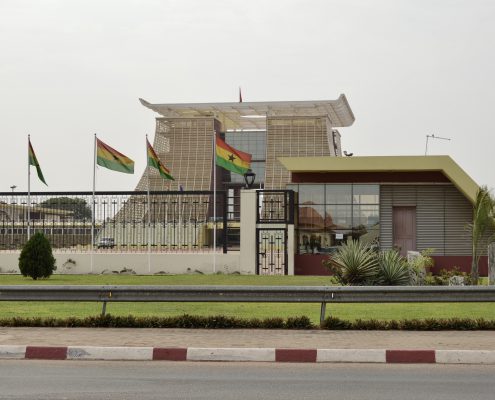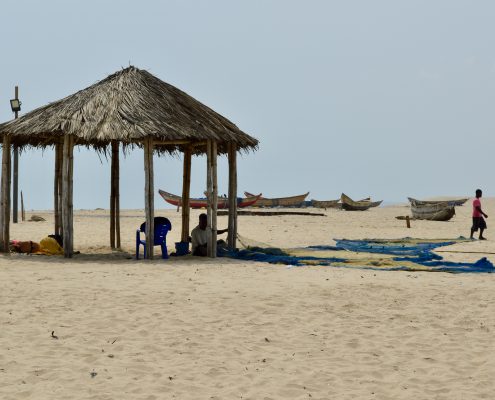Norway | Arrival
By Rose Forster
At the Airport
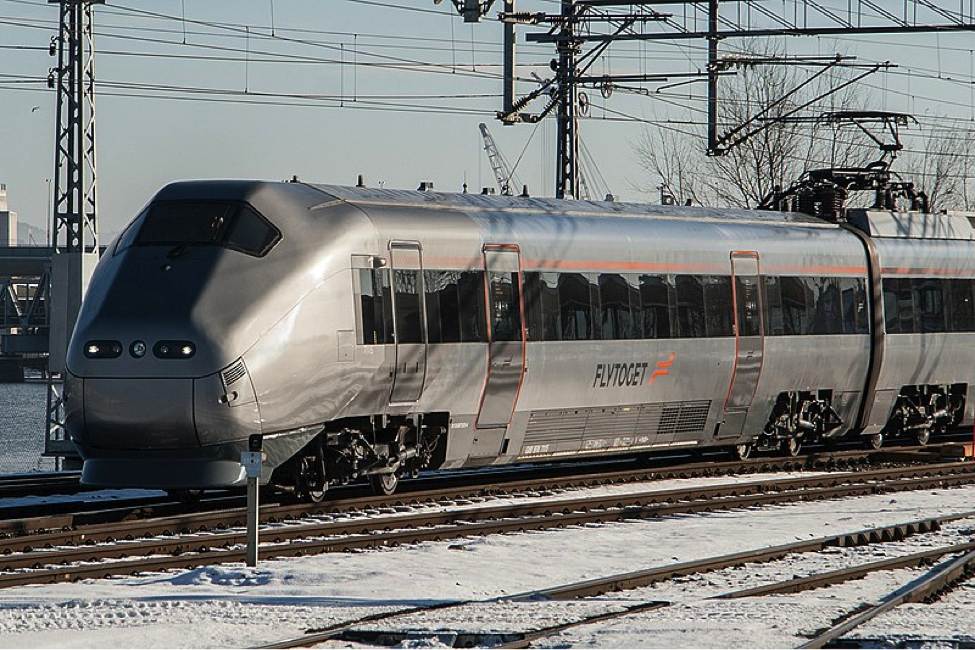
Housing
We had to pick up our keys for housing at the university campus, while the actual student villages we were living in were spread across the city. The only hassle I had with getting my house keys was rolling my suitcase over the cobbled street outside.
I’m living in a little studio apartment in Kringsjå.
It’s small and clean, and most importantly, properly heated for the winter months, although it’s been trapping the heat in summer anyway. Today I walked about ten minutes north of my village, and stumbled across the most beautiful lake. The Norwegians were making the most of the sunny summer day and were swimming in the water, laying out in the sun, and enjoying themselves. It’s no California heatwave, but it’s warm enough to merit bathing suits.
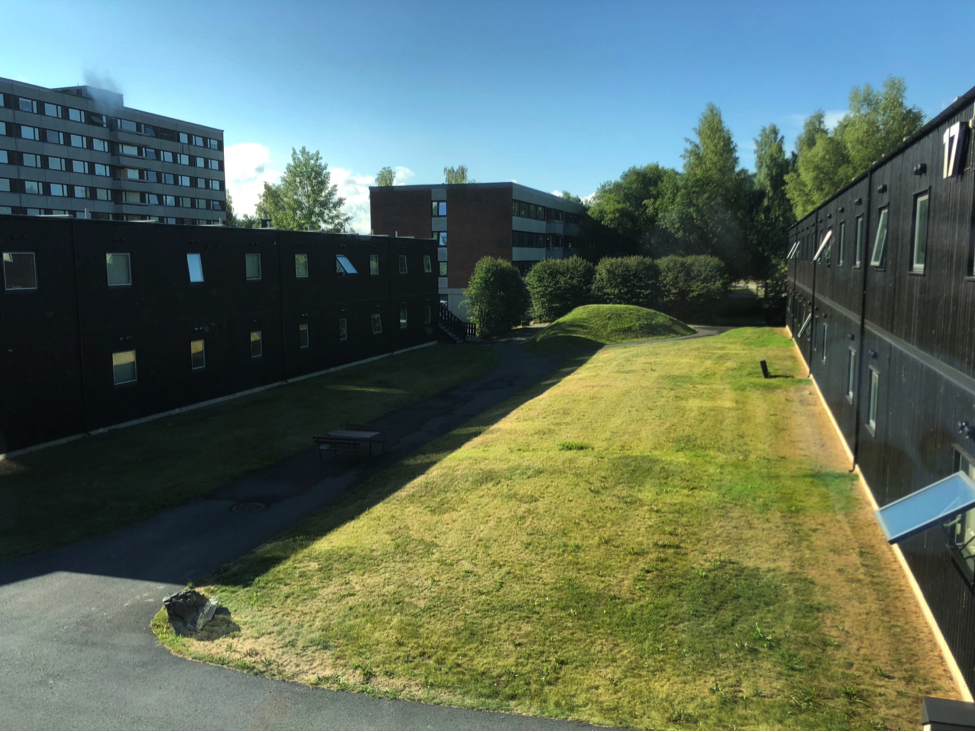
I only arrived yesterday, so my trip so far has been a whirlwind of logistics and jet lag. I’m trying to enjoy the 9:30pm sunset without the looming fear of the eternal darkness of the upcoming winter. My orientation program starts with a party tomorrow and then a week of activities, and I can’t wait to see what Norway has in store.


